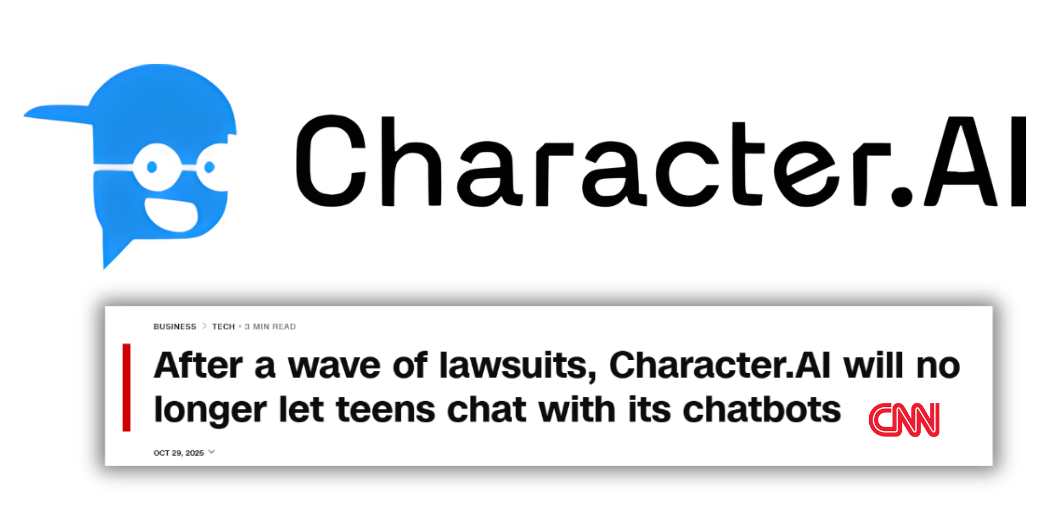Character.AI Bans Minors from Using Companion Bots
Yesterday, Character AI became the first major AI companion platform to ban minors from using companion bots—and the data they revealed underscores why this was necessary. The decision follows multiple instances of harm to young people, resulting lawsuits, an FTC investigation, and the bipartisan GUARD Act introduced this week —federal legislation which would ban AI companions for minors with criminal and civil penalties.
Important details from Character AI's announcement:
Open-ended chats with AI will be banned for minors starting Nov. 25
Chats will initially be limited to 2 hours daily, gradually decreasing until the ban takes effect
Teens will still be allowed to create videos, stories, and streams with GenAI characters on the platform
Character AI will roll out age assurance functionality and an independent non-profit focused on safety innovation for AI entertainment
The scale of this change highlights just how extensively young people are using these platforms. With at least 2 million teen users (10% of its total), Character AI's reach amongst minors is significant. The 2-hour daily limit as a "transition measure" is particularly telling—as research shows Character AI users average 2 hours daily, double the time spent on ChatGPT.
This change in direction by Character AI aligns with what we're hearing in AI for Education's work with school districts—parents are voicing concerns about their children's use of AI companion apps more and more.
This marks a significant shift in how we're approaching emerging technology and youth safety. Unlike the delayed response to social media's impact on youth, we're seeing real-time action on AI companions—from federal legislation to platform policies.
While age verification and platform policies are important first steps, on their own they're not sufficient (or always effective). This moment underscores why comprehensive AI literacy education is critical. Students need to understand the nature of these relationships, the limitations of AI companions, and how to maintain healthy boundaries with technology—which is why we include discussions of AI companionship and digital wellbeing in all of our workshops.
It's a notable change in how quickly stakeholders are responding to emerging concerns, which we believe is imperative to safeguard our young people in this rapidly changing world.

